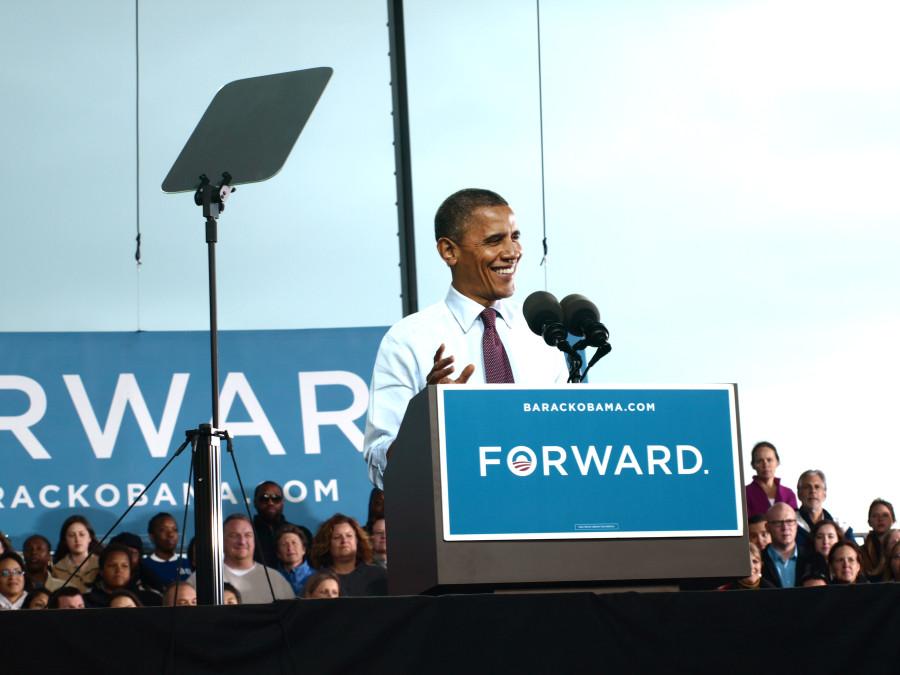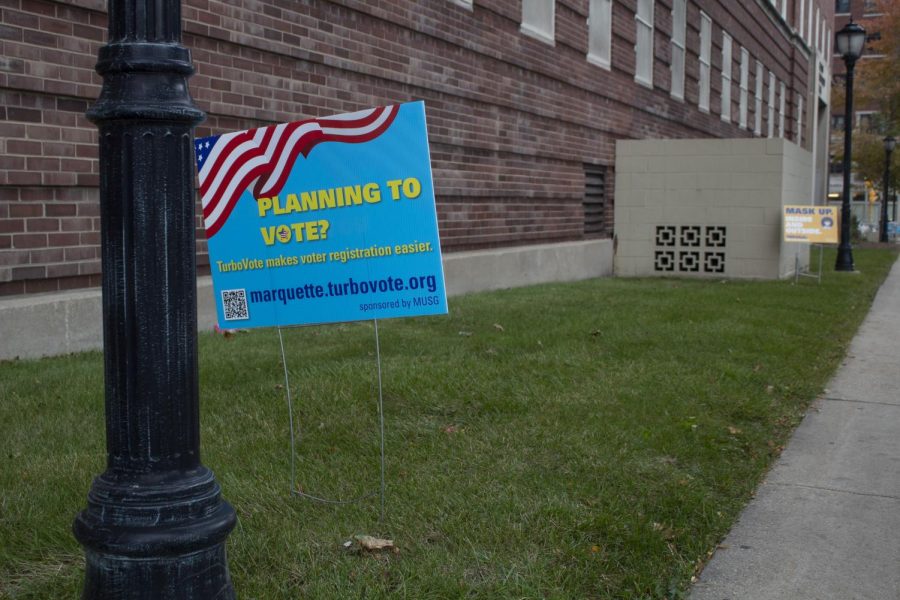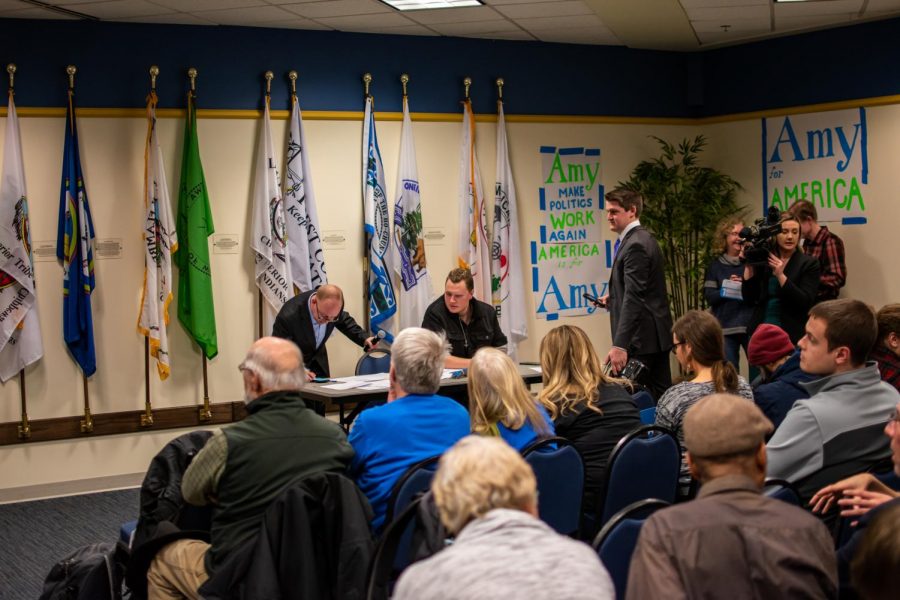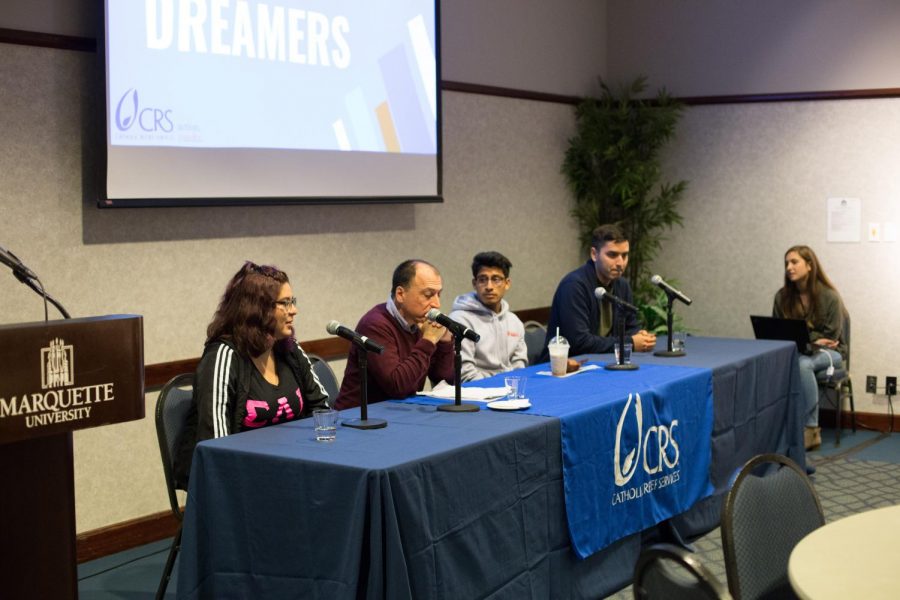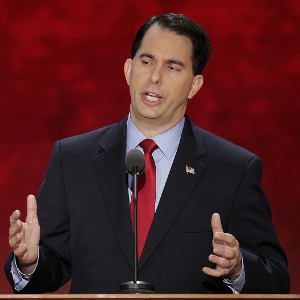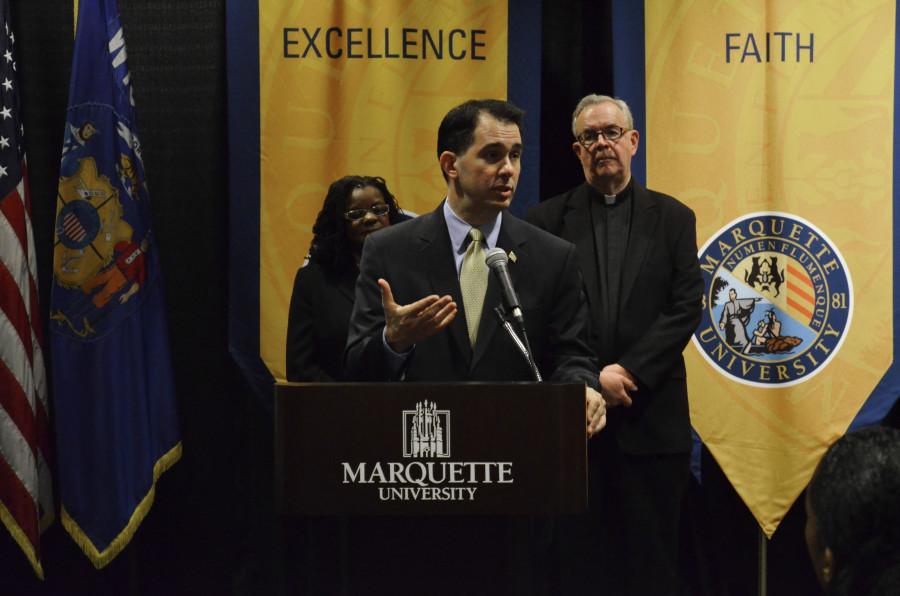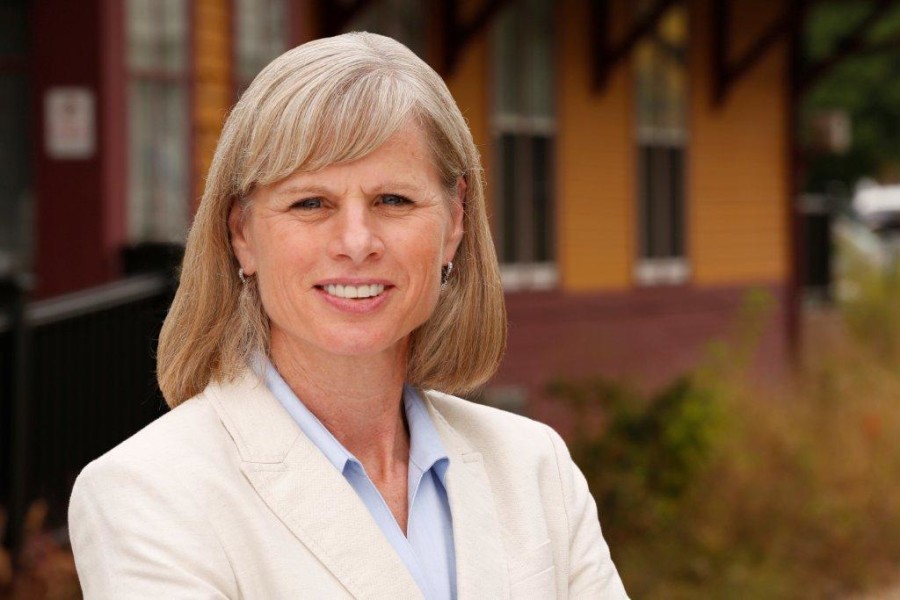
Politics turned personal in the showdown between gubernatorial candidates Milwaukee Mayor Tom Barrett (D) and Milwaukee County Executive Scott Walker (R) during Friday’s UPFRONT Town Hall Challenge, hosted by Mike Gousha at the Marquette University Law School.
With Election Day just two weeks away, candidates targeted each other on matters such as balancing budgets, governing responsibly and campaigning honestly.
The state’s budget and Wisconsin’s $2.7 billion structural deficit were referred to frequently throughout the debate. Barrett said Walker’s proposed tax cuts for small businesses will add $1.8 billion to the deficit and lead to less funding for public safety and education.
Walker said his tax cuts will eventually expand to affect the entire state. Business leaders understand and have endorsed his plan, he said.
Barrett, however, said making promises and following through are two different things.
“Scott says he will cut your taxes,” Barrett said. “Just because I want to get elected doesn’t mean I’m going to promise you something like that … people in this state need a straight shooter.”
Walker said his record proves he can keep promises.
Barrett said Walker’s executive budget in 2010 was $39 million higher than projected.
“My budget is $45 million higher than what it should be, and I take responsibility for that,” Barrett said. “Scott won’t own up to his … one has to take responsibility for their actions.”
In turn, Walker questioned Barrett’s mayoral campaign platform to stop sewage from entering Lake Michigan. This promise clearly has not been kept, he said.
He also accused Barrett of implementing an “attack strategy” in his campaigning. A recent CNN poll shows Walker leading Barrett by 8 points.
Both candidates agreed education is key to decreasing poverty in Milwaukee. Walker coined education as a “moral imperative” that leads to the creation of jobs. Barrett noted only 26 percent of Milwaukee residents go to college.
In the realm of higher education, Walker plans to lower operating costs for the University of Wisconsin system schools and to lower tuition. Barrett could not make promises on the issue, but again said Walker would not be able to fund education if tax cuts occur.
Members of both the College Democrats and Students for Walker were in attendance and rallying at the debate.
Andrea Tarrell, a senior in the College of Arts & Sciences and president of the College Democrats, said she thinks negativity in the race reduces the quality of the political discussion.
“Mudslinging seems to have become the status quo in politics,” Tarrell said. “Candidates resort to attacking their opponent for one reason — it works on voters.”
Craig Maechtle, a junior in the College of Business Administration and an executive board member for Students for Walker, did not think the attack ads are being overdone.
“This type of thing happens in every election,” he said.
Both the College Democrats and Students for Walker are promoting the upcoming election by chalking sidewalks, phone banking and spreading the word across campus.
“It’s crucial that all students inform themselves about what’s at stake in this election and make their voices heard on November 2nd,” Tarrell said.



